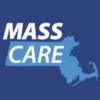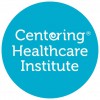
The United States health care system is in crisis. In 2017, over 28 million Americans were uninsured, and health care costs consumed nearly 18% of all national spending. Prescription drug costs, co-pays, and premiums are rising rapidly, leaving countless Americans without access to care. We are the only developed country in the world that does not guarantee its residents health care.
Is expensive: The United States spends more per person than any other country in the world on health care. Is unsustainable: Our costs are not only high, but rising faster than those of other developed countries. Leads to poor health outcomes: The uninsured and underinsured are at a higher risk for premature death than their counterparts.
Is expensive: The United States spends more per person than any other country in the world on health care. Is unsustainable: Our costs are not only high, but rising faster than those of other developed countries. Leads to poor health outcomes: The uninsured and underinsured are at a higher risk for premature death than their counterparts.
Services
By an Initiative Petition placed on the ballot by the people and voted statewide in a general election held in even-numbered years. Mass-Care's position is that while both paths present opportunities and difficulties, neither path can succeed unless a massive statewide grassroots organization is built.
In executing our strategy of building a strong grassroots movement across the state, MassCare is building a network of local single-payer advocacy groups called "hubs" across the Commonwealth. These hubs organize supporters for Medicare for All within its district through neighbor-to-neighbor outreach and public education.
House bill H.1267 and Senate bill S.766 will guarantee equitable health care access for every resident of the Commonwealth through a single payer health care financing system. All residents will be guaranteed access, without regard to financial or employment status, ethnicity, race, religion, gender, gender identity, sexual orientation, previous health problems, or geographic location.
This report analyzes the economic effects of An Act Establishing Medicare for All in Massachusetts, which would establish a comprehensive, universal health insurance program for all Massachusetts residents.
The Act would replace the current multi-payer system of employer-based insurance, individually acquired insurance, and federally sponsored programs (e.g., Medicare and Medicaid) with a single billing pipeline, the Massachusetts Health Care Trust, thereby reducing administrative bloat and monopolistic pricing and dramatically reducing the cost of health care even while extending and improving the provision of care.
The Act would replace the current multi-payer system of employer-based insurance, individually acquired insurance, and federally sponsored programs (e.g., Medicare and Medicaid) with a single billing pipeline, the Massachusetts Health Care Trust, thereby reducing administrative bloat and monopolistic pricing and dramatically reducing the cost of health care even while extending and improving the provision of care.
Single Payer (also known as Medicare for All) is a streamlined health insurance system in which a state organizes and finances health care. In Massachusetts, this would replace our current expensive and complicated system of multiple insurance companies and would result in great cost savings and access to health care for everyone.
Reviews

Be the first to review Mass-Care.
Write a Review


